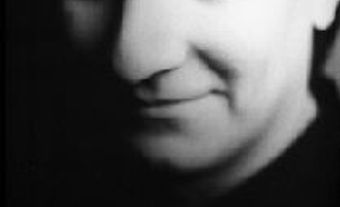Thomas Best Hendry
Thomas Best Hendry, playwright, theatre administrator, arts policy analyst, critic (born at Winnipeg, MB 7 June 1929; died at Toronto 2 Dec 2012). Tom Hendry achieved status as a writer while pursuing an activist career dedicated to creating and developing policy and institutions vital to the support and presentation of the arts.Expelled from the Arts program at the University of Manitoba in 1947 for skipping classes, Hendry graduated as a chartered accountant in 1955. He began acting and writing for the CBC in the early 1950s, when Canadian theatre consisted largely of British and American shows presented by amateur theatres or by foreign touring companies. Influenced by a Western-Canadian pioneer outlook and an optimistic nationalism defined by Canada's wartime experiences, Hendry became active in Winnipeg's burgeoning arts community.
Winnipeg
With John HIRSCH, in 1957 Hendry co-founded Theatre 77, which merged with Winnipeg Little Theatre to become MANITOBA THEATRE CENTRE (MTC). As its administrator (1958-63), Hendry developed the regional theatre model, which was recognized by the Canada Council in 1961. His literary tastes were reflected in the plays presented at MTC during this period. In addition to Western classics and Canadian works, these included Canadian premieres of new foreign works such as Arthur Kopit's O Dad, Poor Dad (1961), Samuel Beckett's Waiting for Godot (1962) and Harold Pinter's Caretaker (1963). He was also producer of Winnipeg's RAINBOW STAGE (1958-61).
Innovations
In 1963 Hendry received the first Canada Council Senior Arts Award to an Arts Manager to study performing arts support systems in the US, UK and Europe. He became Secretary General of the Canadian Theatre Centre (CTC) (1964-69) and, with American consultant Danny Newman, introduced the season ticket approach to stabilizing the finances of performing arts companies in Canada. While at CTC, Hendry persuaded the Canadian government to create a $10-million fund to guarantee CTC-member participation in the Centennial performing arts program. For EXPO '67, Hendry organized Colloquium '67: The Design of Theatres, an international gathering of theatre architects, designers, actors, critics, directors and writers that influenced the 1970s growth of a network of creative small theatres devoted to Canadian work.
Stratford
In 1969 Hendry became the first literary manager of the STRATFORD FESTIVAL, where his emphasis on the alternative and avant-garde influenced the creation of the Tom Patterson Theatre. In 1971 he bought stage rights to Michael Ondaatje's The Collected Works of Billy the Kid and programmed works by international writers such as Fernando Arrabal, Arnold Wesker and Slawomir Mrozek.
Supporting Canadian Plays
In 1971 Hendry shifted his energies to the production and publishing of Canadian plays. He co-founded Playwrights Co-op, Toronto Free Theatre (TFT), where he was president and producer (1971-82). He also founded the Banff Playwrights Colony in 1974 and headed it (1974-6). Throughout the 1970s Hendry wrote plays for TFT and other theatres, scripts for CBC's King of Kensington, as well as critical articles for a variety of publications including Saturday Night, CBC Radio and The Toronto Citizen.
The Arts and Economic Vitality
Hendry's belief in the importance of the arts to the economic vitality of cities was reflected in his 1984-85 report, Cultural Capital: The Care and Feeding of Toronto's Artistic Assets. As policy director of the Toronto Arts Council (TAC) (1984-95) Hendry steered it from a volunteer organization with a $300,000 budget to become Canada's first arms-length, artist-led municipal arts funding agency with a budget of more than $8 million. He also helped develop a "cultural equity" policy, ensuring access for minority artists.
In 1986 he chaired the Task Force on the National Arts Centre. In 1987 Hendry and his wife, Judith Carr Hendry, co-founded Arts and the Cities, a consortium of 25 cities to research and stimulate municipal arts funding. They managed this initiative until 1995.
His Plays
Hendry's plays include Fifteen Miles of Broken Glass (1966), an anti-war play that was denounced in Parliament for its depiction of the burning of British flags and that won the Ontario Lieutenant Governor's Medal for the 1969 stage version; Satyricon (1971), a controversial, sold-out Stratford musical about social corruption; How Are Things with the Walking Wounded (1972 ); Gravediggers of 1942 (1973); Byron (1976); Hogtown: Toronto the Good (1981) and Not in My Back Yard (1994). In 2001 he conducted workshop readings of a new play, Finger of Fate: an Ontario Fairy Tale.
Honours
In 1986 Tom Hendry was named Barker FAIRLEY Distinguished Visitor in Canadian Culture at the University of Toronto. He was invested as an officer of the ORDER OF CANADA in 1995. In 2008 the Manitoba Theatre Centre named a performance venue in his honour: the Tom Hendry Theatre.

 Share on Facebook
Share on Facebook Share on X
Share on X Share by Email
Share by Email Share on Google Classroom
Share on Google Classroom

